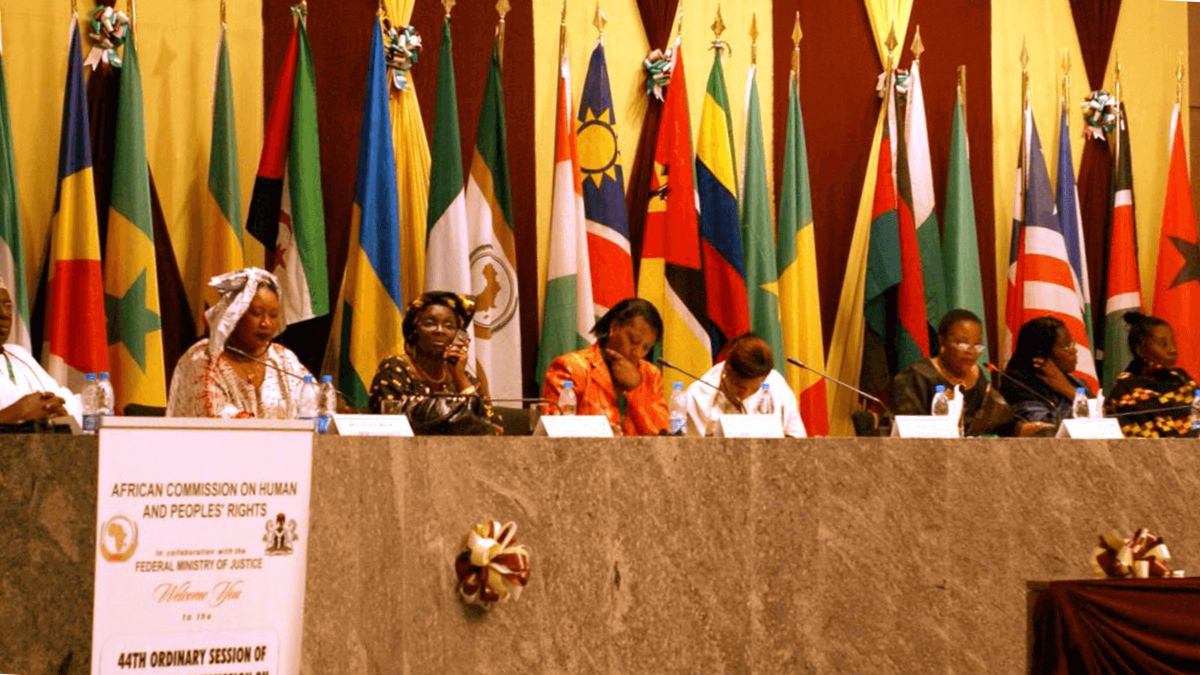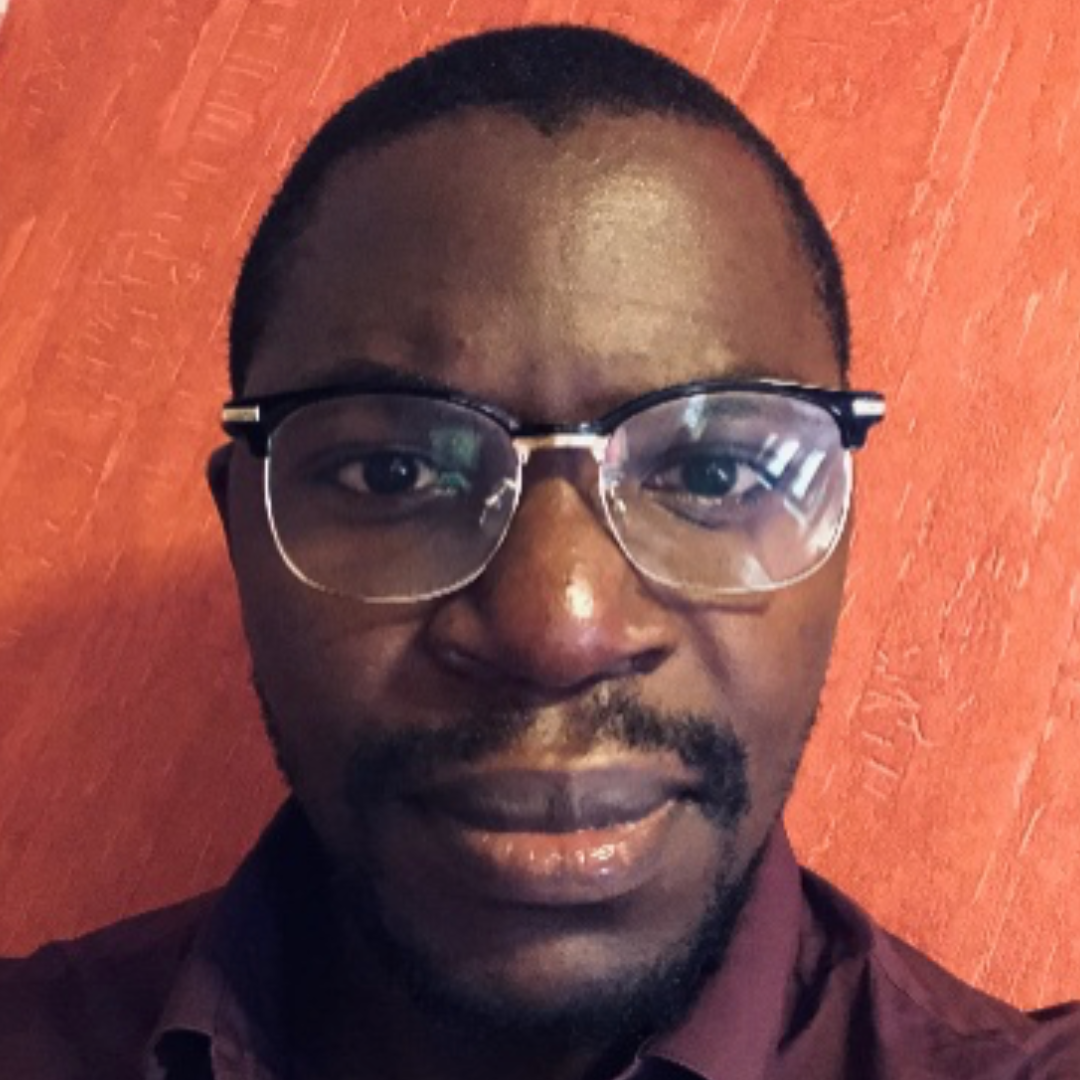When Protests Go Digital: Assessing the Legal Framework in the African Rights Law System
Joris Joël Fomba Tala / Jun 27, 2024This essay is part of a symposium on the promise and perils of human rights for governing digital platforms. Read more from the series here; new posts will appear between June 18 - June 30, 2024.

A meeting of the African Commission on Human and Peoples' Rights. Source
On January 29, 2024, the African Union (AU) Peace and Security Council adopted the “Common African Position on Application of International Law to the Use of Information and Communication Technologies in Cyberspace,” and on February 18, 2024 it was endorsed by the Assembly of the AU. According to its point 53 on human rights, “States shall respect, protect, and ensure the human rights of individuals and peoples in their jurisdiction that relate to the peaceful use of ICTs in cyberspace (…)”. In the digital age, freedoms are exercised through online platforms and social networks. Some authors consider the internet to be a "facilitator" of rights. People across the African continent have been able to enjoy their right to freedom of assembly and association, and their right to freedom of expression and information online in order to carry out protests against the actions of their governments. However, between 2016 and 2022, internet shutdowns steadily increased.
Africa is one of the regions with the highest number of internet shutdowns in the world. According to reports from a number of international organizations, in 2023 the African continent recorded 17 internet shutdowns in 9 countries. In this post, I will analyze the legal framework set out in the African Charter and the African Commission on Human Rights with regard to freedom of association. I describe how internet shutdowns are being deployed as a restrictive measure to limit bandwidth and online organization. I argue that Internet blackouts not only have consequences for freedom of expression and association, but also for a country's socio-economic situation. In my conclusion, I assess the protection afforded to virtual protests in African human rights law, identifying gaps and proposing solutions.
1- The freedom of assembly in the African Charter on Human and Peoples’ Rights
The African Charter on Human and People’s Rights protects a series of rights. These include the freedom of assembly and association, as set out in articles 10 and 11. These rights are considered as two distinct rights (A/HRC/20/27). The limitation clause of this provision sets out the potential grounds for restricting this right, including national security, safety, and health and the rights and freedoms of others. However, read in its entirety and taking into account the interpretation of Article 11 by the African Commission in its case law (and general international law), only peaceful assembly is protected by the Charter.. An “assembly” is defined as an intentional and temporary gathering in a private or public space for a specific purpose. It includes demonstrations, inside meetings, strikes, processions, rallies or even sits-in. Freedom of association is governed by article 10(1) of the African Charter. An “association” refers to any groups of individuals or any legal entities that come together in order to collectively act, express, promote, pursue or defend common interests.
2- The freedom of assembly or association and other rights in the African Charter on Human and Peoples’ Rights
As mentioned above in this section, this essay looks at the rights that interact with freedom to assembly or association and enable them to be enjoyed more fully. Indeed, the exercise of this freedom correlatively entails taking into account freedom of expression and the right to information. The Internet is a vital new platform for allowing free expression. This is contained in Article 9 (2) of the African Charter which states “Every individual shall have the right to express and disseminate his opinions within the law”. The African Commission on Human and People’s rights noted: “When the Charter proclaims that every individual has the right to receive information and disseminate opinions, it also implicitly emphasizes the fact that the expression, reception and dissemination of ideas and information are indivisible concepts. This means that restrictions that are imposed on dissemination represent, in equal measure, a direct limitation on the right to express oneself freely” (Scanlen and Holderness v. Simbabwe case, paragraph 108). The exercise of freedom of assembly or association helps to advance freedom of expression through censorship or criminalization, as we shall see below. The right to freedom of information is set out in article 9(1) which states that “Every individual shall have the right to receive information”. The right to freedom of information therefore refers to the right to "impart" as well as to receive information or ideas regardless of frontiers. A broad interpretation of the African Charter would suggest that this last aspect covers the most developed means of information today, namely the internet or ICTs.
3- Protection of digital rights in the context of virtual protest by organs
With regard to freedom of assembly, it is stated that States shall respect in law and in practice the right to freedom of expression through assembly, and States shall not discriminate between assembly and the expression it implies (the African Commission's Guidelines on Freedom of Association and Assembly, Principe 77). In addition, speeches criticizing government action made during a meeting are afforded maximum protection under the right to freedom of expression (Principe 79). As with the right to freedom of association, any restrictions on freedom of assembly must be subject to the principles of proportionality, necessity, legality and non-discrimination (Principe 85). For instance, in Media Right Agenda v. Nigéria, (paragraph 65), the Commission emphasized that restrictions must not negate the essence of the right of peaceful assembly, but must be aimed at facilitating the exercise of that right. This obligation of non-discrimination must be fulfilled in particular because some gatherings pursue controversial or anti-government causes and are therefore predisposed to interference (Resolution on Right to peaceful demonstrations). In any case, this legal instrument applies to virtual protests through a teleological interpretation of the texts of the African Commission on Human Rights. This approach takes into account the purpose of the Charter, namely the protection of human rights, whatever they may be.
4- Systematization of internet shutdowns as means of restricting virtual protests
Some authors have argued that the particularity of internet shutdowns in Africa is that they generally emanate from totalitarian regimes. With this in mind, the same authors have described these internet closures as “the most brute force method of internet control”. As a result, internet restrictions by certain African governments appear to be common tactics for limiting bandwidth and online organization. Several forms of internet restriction are used, the most extreme of which is the total closure of internet services. For example, on 5 August 2023, following the political tensions that led to the arrest of Senegal's main opposition figure Ousman Sonko, the government blocked TikTok, preventing the population from communicating openly. In Gabon, the government blocked internet access after an election marked by major voting delays.
The internet offers incredible opportunities, resources and innovations for the African continent, with the world's largest young population facing socio-economic, employment and environmental challenges, among others (Ilori T.).In other words, an internet blackout would have disastrous socio-economic consequences. In Sudan, for example, it is estimated that the closure of the internet in April 2023 cost more than three million dollars and led to the loss of 560 jobs. African states justify internet shutdowns on the grounds of national security, public order, public safety, combating disinformation and protecting school examinations. Between 2016 and 2022, internet shutdowns have steadily increased over time. Africa is one of the regions with the highest number of internet shutdowns in the world.
5- Assessment, expanding and legal challenges
An analysis of the legal instruments and case law of the African Court of Human Rights and the African Commission on Human Rights shows that the issue of protecting virtual protests is evolving rapidly on the continent. Online protests are still not sufficiently protected. Although certain provisions of the African Charter and the Commission's guidelines can be used in relation to virtual protests, the African Charter does not contain explicit provisions governing virtual protests. Consequently, there is no adequate guidance for member states on how to protect virtual protests in light of the emerging forms of online freedom of demonstration that are not mentioned in African human rights legal instruments.
They are helped in this by the sub-regional courts, which are more courageous, especially when it comes to protecting journalists. As far as the protection of journalists is concerned, the European Court of Human Rights (ECHR) regularly stresses the crucial role of journalists in a democratic society (Sunday Times v. Royaume-Uni, paragraph 50). The drafters of the Charter could draw inspiration, for example, from the European Commission for Democracy Through Law guidelines on freedom of peaceful assembly. In this non-binding text, paragraph 9 deals specifically with "freedom of assembly and protest.”
Ultimately, cyber security initiatives at the level of the Court and the African Commission on Human Rights should take into account all aspects of virtual protests, including spontaneous protests, simultaneous meetings and counter-demonstrations. There is therefore an urgent need for the issue of virtual protests to be addressed in the protection of online human rights on the African continent.
Authors
